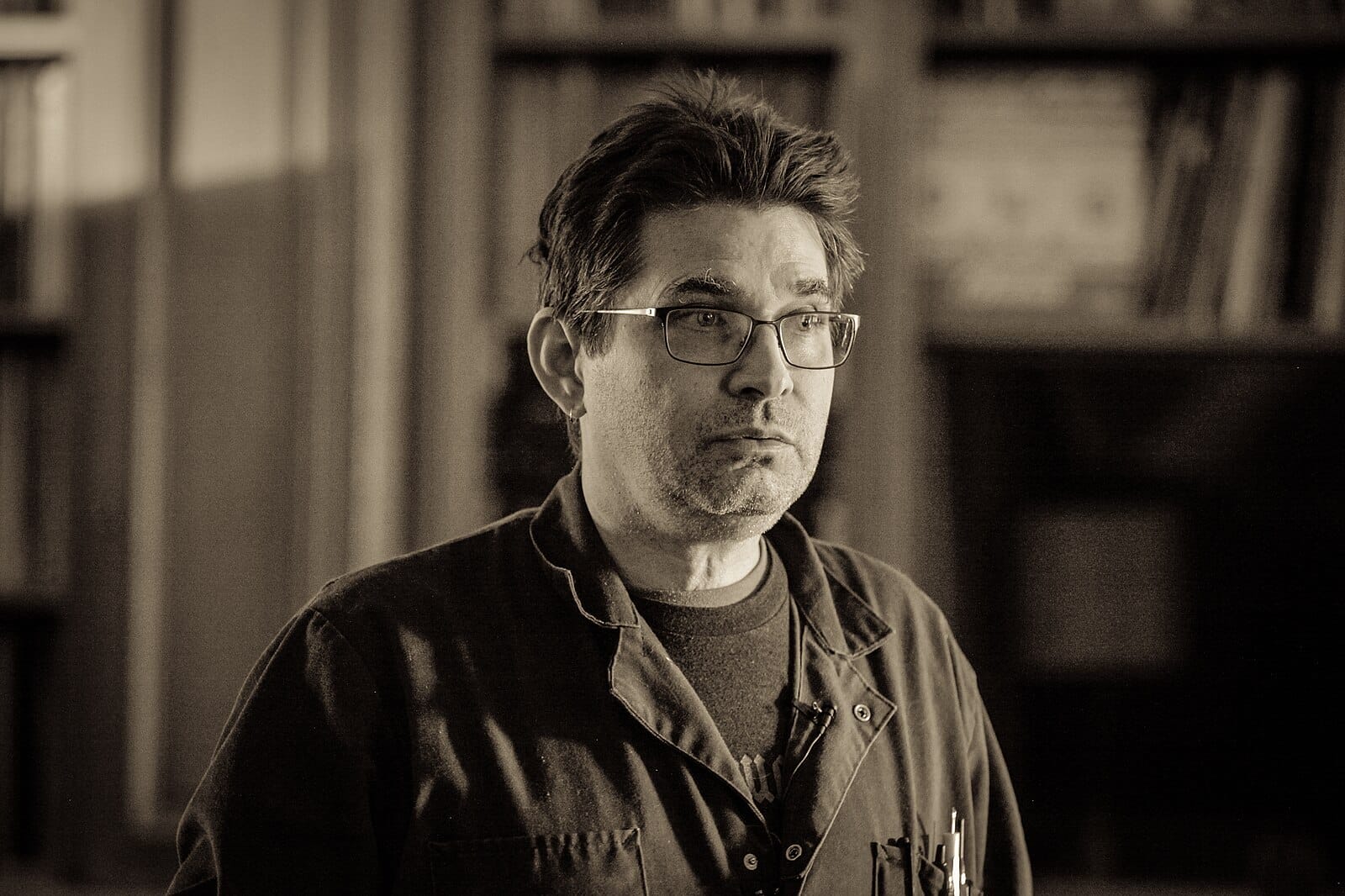Steve Albini, Punk Legend, Passes Away at 61

“Steve Albini” by Mixwiththemasters is licensed under CC BY-SA 4.0. To view a copy of this license, visit https://creativecommons.org/licenses/by-sa/4.0/?ref=openverse.
Today, the music world mourns the loss of Steve Albini, who passed away suddenly from a heart attack on Tuesday, May 7. As a performer, engineer, organizer, and champion for the underground, Albini was a crucial figurehead in the formation of the alternative rock scene, lending his expertise to uplift such legends as Nirvana, Pixies, PJ Harvey, the Jesus Lizard and many more. Through his career, the artist attained a reputation as a staunchly opinionated advocate for music, whose razor-sharp commentary on the recording industry proved prophetic and came to shape the ideologies of multiple generations of artists and fans. He was 61.
Born in Pasadena, Calif., Albini spent much of his early years moving from home to home before coming of age in Missoula, Montana. In his early teens, the artist’s life was forever changed by contact with the music of the Ramones; shocked and amazed by the group’s do-it-yourself ethos and unrepentant attitude, Albini would go on to credit the whole of his music career to that formative encounter with the group’s first album, which spurred his rapid immersion into his local punk scene. Albini later received a degree in journalism from Northwestern University, which he put to use immediately through notoriously witty and rabid scrawls for local punk zines in his new home of Chicago, where he found a scene that “enabled [him] to continue on with a life in music,” as told to NPR.
Albini found his break into the music industry in 1981 with the formation of Big Black, which became a repository for every last drop of his creativity, commentary and conscience. While he initially recorded each part solo atop a Roland TR-606, he soon found likeminded collaborators in Jeff Pezzati and Santiago Durango of Naked Raygun, and later drummer Pat Byrne. After swapping in Dave Riley for Pezzati, the band delivered the unforgettable albums Atomizer and Songs About Fucking, which blew the lid off a new strain of punk with whirring chainsaw guitars, syncopated, synthetic percussive chops and snarling, unrestrained lyrics, heard on such tracks as “Kerosene” and “Bad Penny.”
Shortly after Big Black, Albini moved on to form Shellac in 1990, which honed the chaos of his previous work to a fine point and produced some of the most iconic projects of the post-hardcore era with 1994’s At Action Park, 1998’s Terraform, 2000’s Excellent Italian Greyhound and 2014’s Dude Incredible. This month, Shellac were preparing to travel with To All Trains, the band’s first album in a decade, which is slated for release next week.
Albini routinely refused the title of producer, for its connotations of exerting commanding influence over the material at hand. With that caveat, he gave his efforts tirelessly to supporting the works of other artists, serving as a recording engineer for an estimated several thousand albums issued from the underground that gave voice to generation after generation of sonic revolutionaries. Albini became highly regarded and demanded for his analog-purist production style, creating classic and exacting deliveries of his collaborators’ messages, free from frills and distractions and favoring unwavering directness.
Among his most renowned creations are Nirvana’s In Utero, Pixies’ Surfer Rosa, PJ Harvey’s Rid of Me, The Breeders’ Pod, Jon Spencer Blues Explosion’s self-titled, Joanna Newson’s Ys, Palace Music’s Viva Last Blues and many, many more. Other collaborators included the Jesus Lizard, Superchunk, Slint, Melt-Banana, Veruca Salt, Silver Apples, Low, Mogwai, Jason Molina, The Stooges, Umphrey’s McGee, Sun O))) and Ty Segall. In all, Albini’s staggering canon earned him regard not only as the definitive creator of some of the most striking and distinctive moments in rock, but as one of the greatest engineers of all time.
Steve Albini lives on in the canon of music’s most important innovators. He was an unrelenting iconoclast and idealist who made his vision for the future manifest in frenetic fits, channeling his inexhaustible creative energy into music, criticism, collaboration and clear-headed guidance for up-and-comers. He was respected both for the boldness of his thoughts and actions and his willingness to reevaluate his perspective and move through the world with the best interests of his community at heart. His life and career have been an inspiration to innumerable successors, and he lives on in the indelible mark he left on the world of music.



















